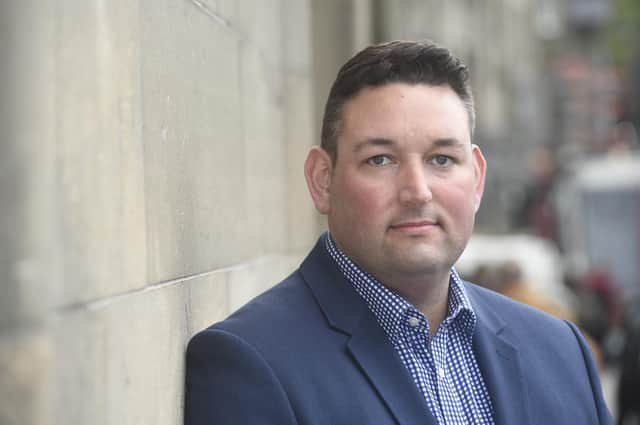We can do more to reduce loneliness in the capital - Miles Briggs


I recently hosted a cross-party roundtable at The Scottish Parliament with specialists and charities to discuss what more can be done to help address loneliness and social isolation in our society.
It was a very productive roundtable, and it was great to see so many people from a variety of sectors interested in engaging in the issue, with communities, charities and organisations united in their efforts to bring an end to the loneliness and isolation that is causing a public health and well-being crisis across Scotland and the United Kingdom. I was pleased to have speakers such as Dr Jane Morris, Head of the Royal College of Psychiatry, to discuss the effects of loneliness on mental health.
Advertisement
Hide AdAdvertisement
Hide AdIt was also both informative and important to have Dr Morris, Police Scotland’s specialist on scammers and fraudsters who target the elderly and isolated, and DCI Steven Trim, speak at the roundtable about the wider consequences of social isolation. We all have seen the negative impacts of the Pandemic with many older citizens and people self isolation for health reasons and in many cases not returning back to their previous clubs or groups or still not being confident in public places. Much is needed to ensure that people feel more connected across Scotland, be that socially, professionally, or otherwise.
Edinburgh is classed as one of the loneliest places to live in the UK, with research from Changing Britain indicating that around 33 per cent of people in Edinburgh feel that they are not involved or a part of the community.
In GP surgeries across the country, more and more people are talking to doctors about loneliness issues. For many, this is because of limited social interaction with many spending less than an hour per day socialising. It is also clear that the current cost-of-living pressures is adding to the tragic knock-on effects of loneliness and isolation, with this being even more acutely felt by the older generation. Loneliness is not just a mental health issues – it is a physical health one. Indeed, it has been shown that loneliness increases the risk of heart attacks and strokes by 30 per cent and the risk of dementia by as much as 50 per cent.
It would be easy for people to dismiss loneliness as something that people unfortunately have to deal with. But it shouldn’t be this way.
Advertisement
Hide AdAdvertisement
Hide AdThe lockdowns across the UK and Scotland exacerbated what was already a huge problem in our communities, and I spoke in the debating chamber last year about the shocking fact that loneliness could increase the risk of death by 26 per cent.
We need to address this very real public health crisis and we need to do it now. The generosity and kindness of organisations such as the Eric Liddell Community centre in Edinburgh is a tremendous asset, and charities like Vintage Vibes are doing excellent work, but they require help and funding to reach more people.
While local authorities are being squeezed, we cannot hope to see an improvement in statistics surrounding loneliness in Scotland. It is crucial that we foster community, and church halls, community centres, sports clubs and the like are crucial to this. We can all make a difference to help tackle loneliness and social isolation across Scotland. Sometimes that starts with a simple conversation or asking someone for to meet for a coffee.
Miles Briggs is a Conservative Lothian MSP